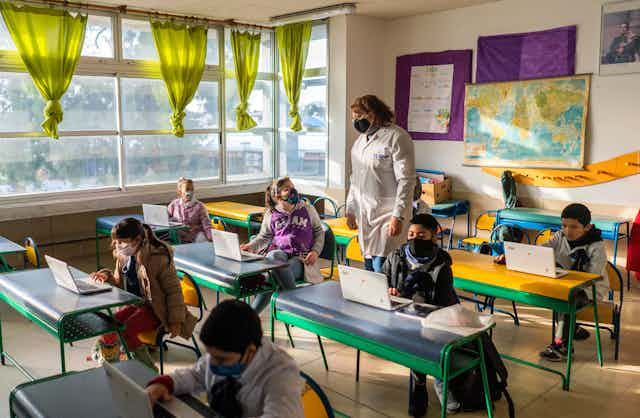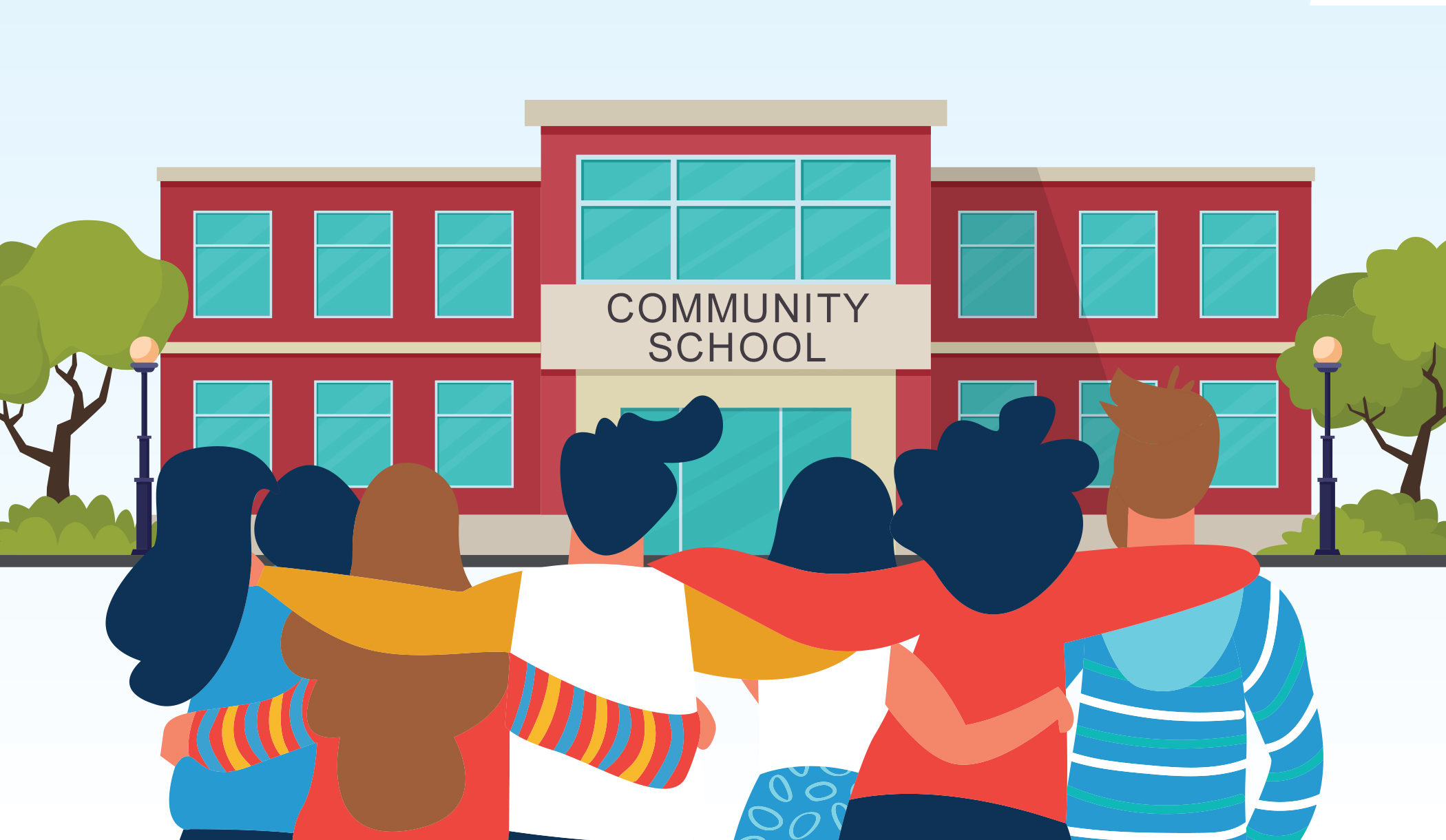Innovative Solutions to Save Temecula Schools from Budget Plan Cuts
Innovative Solutions to Save Temecula Schools from Budget Plan Cuts
Blog Article
Understanding the Importance of Schools in Youngster Development and Community Growth
Schools work as critical organizations for child growth and community growth, giving environments where scholastic success are matched by the farming of social abilities and exposure to varied viewpoints. These educational setups not just promote vital reasoning and effective communication yet also foster empathy with joint projects. Furthermore, colleges' engagement with local neighborhoods with service-learning campaigns strengthens the bond between households and schools. This cooperative partnership emphasizes the importance of schools in nurturing active citizenship and lifelong learning practices. What are the details devices by which these institutions accomplish such extensive impacts?
Academic Accomplishment
Academic achievement works as a keystone of kid development, providing the structure upon which future knowing and success are built. Colleges play an essential role in cultivating this scholastic growth, supplying organized settings where youngsters can get vital knowledge and cognitive abilities. Standardized educational program make certain that trainees gain proficiency in core topics such as maths, scientific research, and language arts, which are vital for both higher education and expert possibilities.
Along with passing on basic academic abilities, colleges additionally cultivate critical reasoning, problem-solving abilities, and intellectual interest. These cognitive competencies are crucial for browsing complex real-world circumstances and adjusting to the ever-evolving demands of the modern work environment. Teachers, as facilitators of knowing, utilize varied pedagogical techniques to deal with diverse learning styles, therefore making best use of private trainee possibility.
Furthermore, scholastic success is very closely linked to self-confidence and motivation. Kids that experience scholastic achievements are more probable to establish a positive self-concept and a long-lasting interest for learning. Colleges likewise supply various resources, such as collections and modern technology, which further improve the academic experience and prepare trainees for a highly innovative society.
Social Ability Development
Beyond academic achievement, the function of schools in social skill development is vital. Schools act as a key venue for children to find out and exercise important social abilities such as problem, interaction, and participation resolution. In the structured setting of a class, pupils communicate with peers, teachers, and other college staff, offering countless possibilities to create these vital abilities.
Effective social ability growth in schools is facilitated via group activities, collaborative tasks, and extracurricular programs. These interactions assist trainees understand social standards, build empathy, and foster a feeling of neighborhood. As an example, team projects teach pupils just how to function together in the direction of a typical objective, listen to various point of views, and browse disagreements constructively.

The growing of social abilities during academic year lays a structure for future individual and specialist connections. Save Temecula Schools. As pupils develop, the capability to successfully work together and communicate comes to be progressively crucial, emphasizing the school's essential function in alternative youngster advancement
Exposure to Diversity
Exposure to diversity in institutions is basic to fostering an inclusive attitude and widening trainees' viewpoints. Schools function as a microcosm of the broader society, and experiencing varied societies, languages, and socioeconomic histories within this setting outfits students with crucial abilities for browsing a significantly globalized world. This exposure motivates empathy, decreases prejudices, and advertises common regard among peers.
Research suggests that students who interact with peers from diverse backgrounds display better analytic skills and creative thinking. This understanding of diversity prepares trainees for future workplaces that worth multicultural capability - Save Temecula Schools.

Area Engagement
The benefits of varied classrooms extend beyond the institution walls, fostering a strong feeling of community involvement among pupils. By communicating with peers from various social, socioeconomic, and ethnic backgrounds, pupils get a more comprehensive viewpoint and a recognition for diversity. This exposure urges them to become active citizens that want to contribute positively to their neighborhoods.
Colleges that emphasize area interaction typically incorporate service-learning tasks, which allow pupils to address real-world problems while using academic skills. These tasks not only boost pupils' understanding of their coursework check however additionally impart a feeling of obligation and empathy. Partnerships between colleges and local companies give pupils with possibilities to get involved in community events, additionally solidifying their role as positive area participants - Save Temecula Schools.
Additionally, adult and area participation in colleges reinforces the bond between academic organizations and the areas they offer. Via these efforts, institutions play a critical role in nurturing community involvement and fostering societal development.
Lifelong Discovering Behaviors
Creating long-lasting discovering habits is crucial for a child's continuous development and flexibility in an ever-changing globe. Schools play a pivotal duty in instilling these practices by creating an environment that fosters curiosity, essential thinking, and a love for understanding. Via varied curricula and extracurricular tasks, instructors motivate trainees to discover various subjects, analyze info seriously, and apply their learning to real-world circumstances.

Additionally, institutions provide an organized atmosphere where youngsters can create self-discipline see it here and time administration skills, both of which are essential for continuous understanding. By emphasizing the value of setting objectives, assessing progression, and adjusting approaches, schools prepare trainees to navigate the complexities of adult life, guaranteeing they continue to be long-lasting students and contributors to society.
Final Thought
Finally, schools are important in fostering youngster development and neighborhood development by providing settings conducive to academic success, social skill development, and direct exposure to variety. Via collaborative projects and communications, schools boost vital thinking, compassion, and communication skills. Area engagement initiatives better strengthen the bond in between neighborhood areas and educational institutions. Inevitably, schools cultivate lifelong knowing behaviors, furnishing individuals with the essential expertise and abilities to add favorably to society.
In the organized environment of a class, pupils connect with peers, instructors, and other school personnel, providing many opportunities to create these critical capabilities.
In essence, direct exposure to diversity within institutions not just improves specific students yet additionally strengthens the social material of the community as a whole.
The benefits of diverse classrooms expand beyond the institution walls, fostering a solid sense of community interaction among pupils.Institutions that emphasize community engagement usually integrate service-learning tasks, which permit pupils to deal with real-world issues while applying academic skills. Collaborations between colleges and neighborhood companies offer students with chances to get involved in community occasions, further strengthening their role as aggressive area members.
Report this page